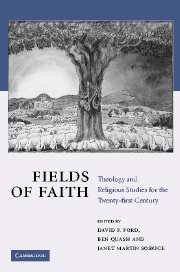11 - Friendship
Published online by Cambridge University Press: 22 September 2009
Summary
According to Cicero, the ‘one thing in human experience about whose advantage all men with one voice agree, is friendship …’. Some men hold virtue in contempt, others disdain riches or political honours, but ‘concerning friendship all, to a man, think the same thing … that without friendship life is not life at all’.
That friendship is one of life's greatest goods is as near a universal sentiment as one is likely to find, yet, as a topic for philosophy, friendship is nowadays neglected. It was not always so. Western Christian writings on friendship are heavily indebted to Cicero, who is himself already indebted to the Greeks. In the fourth century Ambrose and Augustine are wholehearted in their endorsement of Cicero – Augustine finds his definition of friendship cannot be bettered.Writing in the same vein in twelfth-century England, Aelred of Rievaulx cites Cicero almost word for word: ‘Friendship is mutual harmony in affairs human and divine coupled with benevolence and charity.’
Indeed, despite some fretful indications that one should be able to carve out a distinctly Christian position on friendship – Aelred insists, for instance, that ‘Tullius [Cicero] was unacquainted with the virtue of true friendship, since he was completely unaware of its beginning and end, Christ’ – Aelred rarely moves far in form or in substance from his pagan master. In this he and other Christian writers were no doubt encouraged by Cicero's own natural theology, notable in the way his definition continues.
- Type
- Chapter
- Information
- Fields of FaithTheology and Religious Studies for the Twenty-first Century, pp. 167 - 181Publisher: Cambridge University PressPrint publication year: 2005



